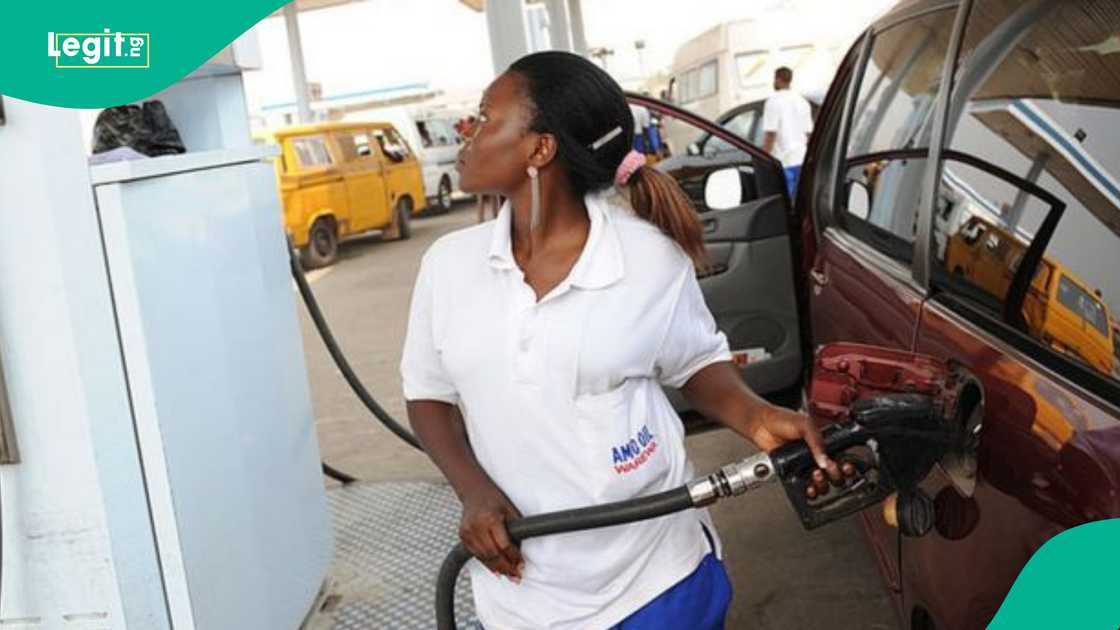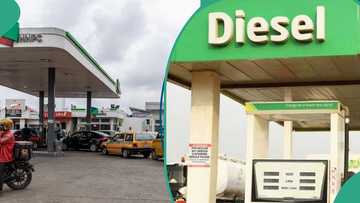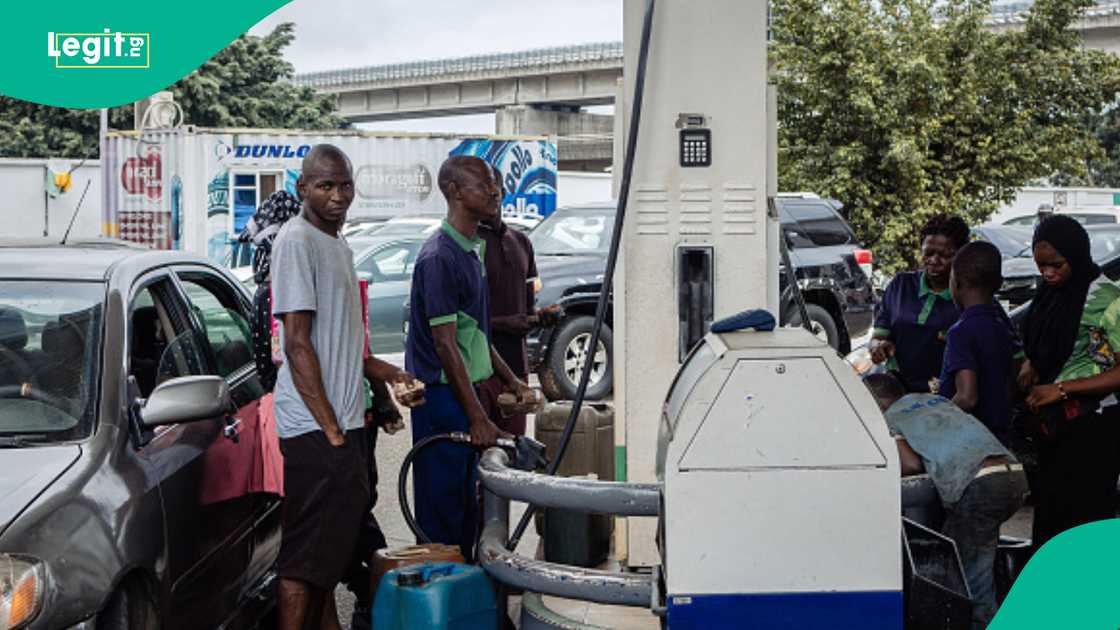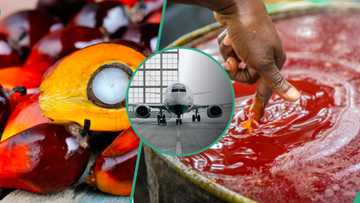Petrol Sells for N42 Per Litre as Report Lists Countries With Cheapest Fuel
- The average petrol price worldwide ranges between ₦1970.71 and $1.29 per litre, with richer countries generally having higher prices
- Nations with significant oil reserves, like Libya, Iran, and Venezuela, maintain low fuel prices through government subsidies
- The top ten countries with the lowest petrol costs are highlighted, showcasing the effects of subsidies and oil production on fuel affordability
Legit.ng journalist Zainab Iwayemi has 5-year-experience covering the Economy, Technology, and Capital Market.
The average price of petrol worldwide is between ₦1970.71 and $1.29 per litre, although there are significant differences between countries.

Source: Getty Images
In general, however, richer countries have higher prices, while poorer countries and those that produce and export oil have much lower prices.
Even though all nations have access to the same international petroleum prices, they choose to impose different taxes and subsidies, which is why the prices vary from one country to another.
Lower operating expenses for industries like manufacturing, shipping, and agriculture result from cheaper gasoline, which increases profitability and promotes growth. The top ten nations with the lowest petrol costs are highlighted in this article using data from GlobalPetrolPrices.com.
Libya—$0.028 (₦42.397)
Libya, wealthy in oil reserves, keeps fuel costs exceptionally low through hefty government subsidies, according to a Tribune report. This long-standing strategy helps ensure affordable energy for citizens and maintains social stability. But it puts a strain on public coffers and can lead to issues like fuel smuggling.
Iran—$0.029 (₦43.740)
Iran maintains extremely low fuel prices through significant government subsidies and has substantial oil and natural gas reserves. Although it significantly strains the national budget, this method is part of its economic policy to support citizens and maintain stability. A recent steep drop in price is reflected in the July 2025 estimate, making fuel incredibly cheap.
Venezuela—$0.035 (₦53.519)
The greatest proven oil reserves in the world are found in Venezuela. Through significant subsidies, its communist government has maintained exceptionally low gas costs for decades, essentially making fuel free for the populace. The nation's capacity to produce and refine oil has been hampered by economic crises and international sanctions, but the government's dedication to affordable gasoline is still a key factor in its low costs.
Angola—$0.327 (₦500.253)
Angola, one of Africa's leading oil producers, provides social assistance through fuel subsidies. These subsidies continue to keep fuel costs low in comparison to international rates, even though the government has begun to reduce them. However, because refined fuel is primarily imported, maintaining these subsidies becomes more expensive as the local currency depreciates.
Kuwait—$0.343 (₦524.827)
Kuwait, which has abundant oil reserves, keeps fuel prices extremely low by massively subsidizing its population's access to energy items like gasoline. The subsidies are still in place even if there have been minor price adjustments to promote more cautious energy use. Fuel is therefore inexpensive, which results in extremely high levels of use.
Algeria—$0.353 (₦540.216)
Algeria is a leading producer of natural gas and oil in Africa. Its supply provides the majority of the nation's fuel, which is substantially subsidized by the government. With the help of the country's natural resources, this assistance keeps fuel prices low for its residents, lowering the cost of energy.

Read also
Diesel prices increased in Nigeria as report lists 10 African countries with the highest prices
Egypt—$0.385 (₦588.000)
One of Africa's major producers of hydrocarbons is Egypt. The government has historically provided significant subsidies to make fuel affordable for its inhabitants. Fuel costs have remained relatively low due to sustained support and domestic oil production, despite continuous efforts to reduce these subsidies to relieve pressure on the national budget.
Turkmenistan—$0.427 (₦653.465)
With its own oil production and the fifth-largest confirmed natural gas reserves, Turkmenistan maintains extremely low fuel prices for its people. This is because, as is common in energy-rich nations with state-run economies, the government has strict control over the energy sector and provides substantial domestic subsidies.
Kazakhstan—$0.465 (₦710.676)
Through price regulations and government subsidies, Kazakhstan, one of Central Asia's top producers of gas and oil, maintains low gasoline prices. Despite attempts to permit market-based pricing, popular outcry frequently compels the government to maintain or restore these restrictions in order to guarantee that fuel stays within the means of the general people.
Malaysia—$0.483 (₦738.875)
Fuel prices are adjusted weekly by Malaysia, an oil-producing nation, using an Automatic Pricing Mechanism (APM), which also includes subsidies to assist control expenses. The government continues to subsidise fuel prices to lower living expenses, maintaining local pump rates far below global market levels even as it seeks to examine and restructure these subsidies.

Source: Getty Images
Dangote’s 4,000 CNG trucks fuel distribution sparks panic
Legit.ng reported that as Dangote Refinery and Petrochemical Limited intensifies moves to begin using 4,000 Compressed Natural Gas (CNG) trucks to distribute fuel, many players in the oil and gas industry have started aligning with the company’s plan.
As of Friday, July 18, at least 25 oil marketers had signed up for direct supply from the refinery, a significant increase from just three in the beginning.
This growing interest shows the industry’s rising confidence in Dangote’s fuel distribution model.
Proofreading by James Ojo, copy editor at Legit.ng.
Source: Legit.ng




